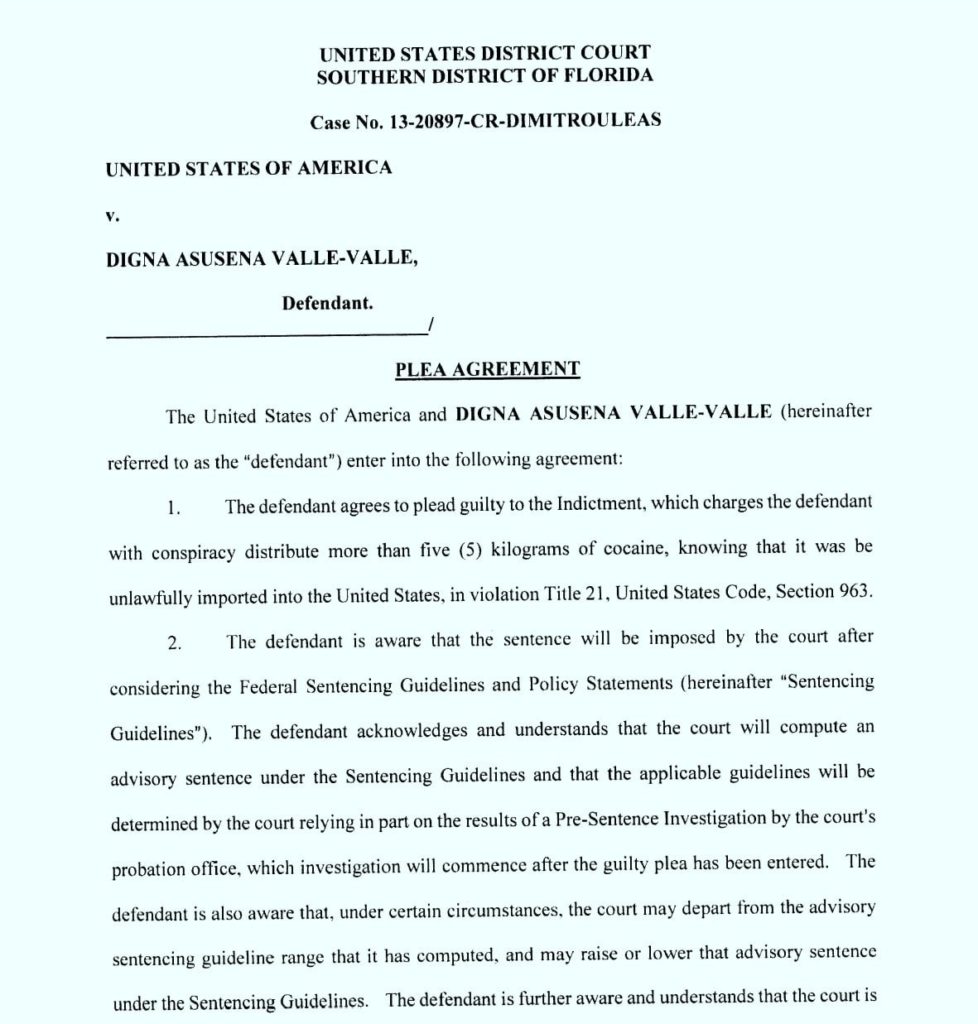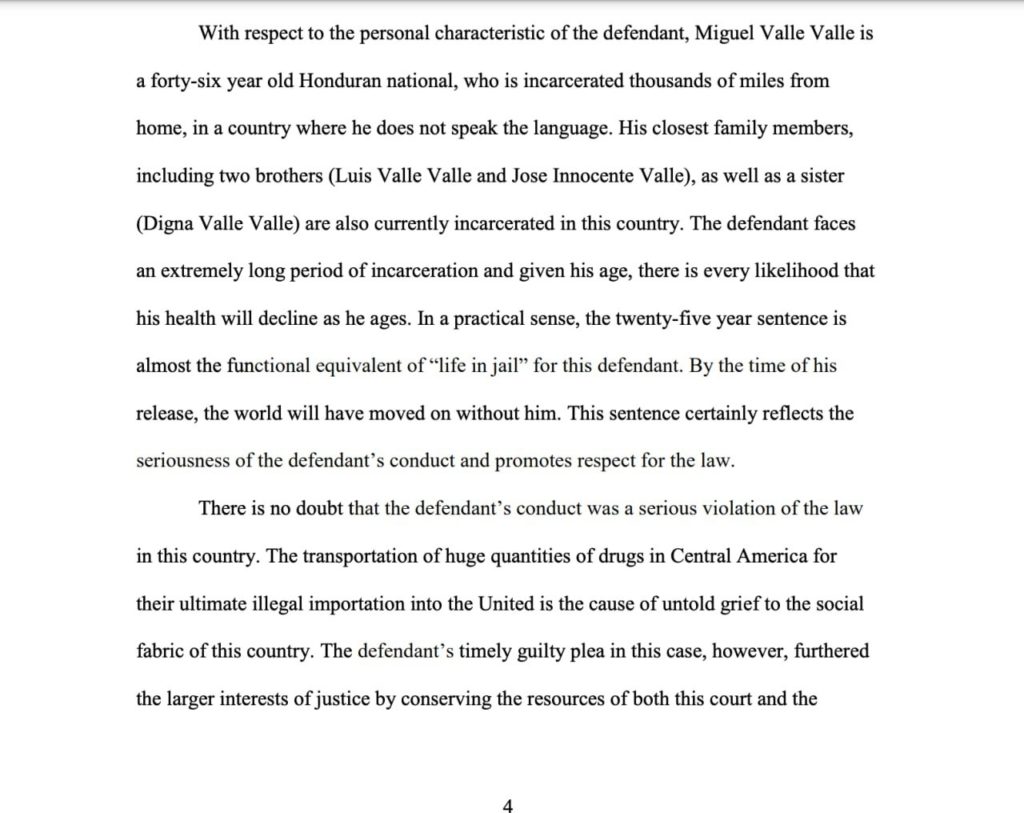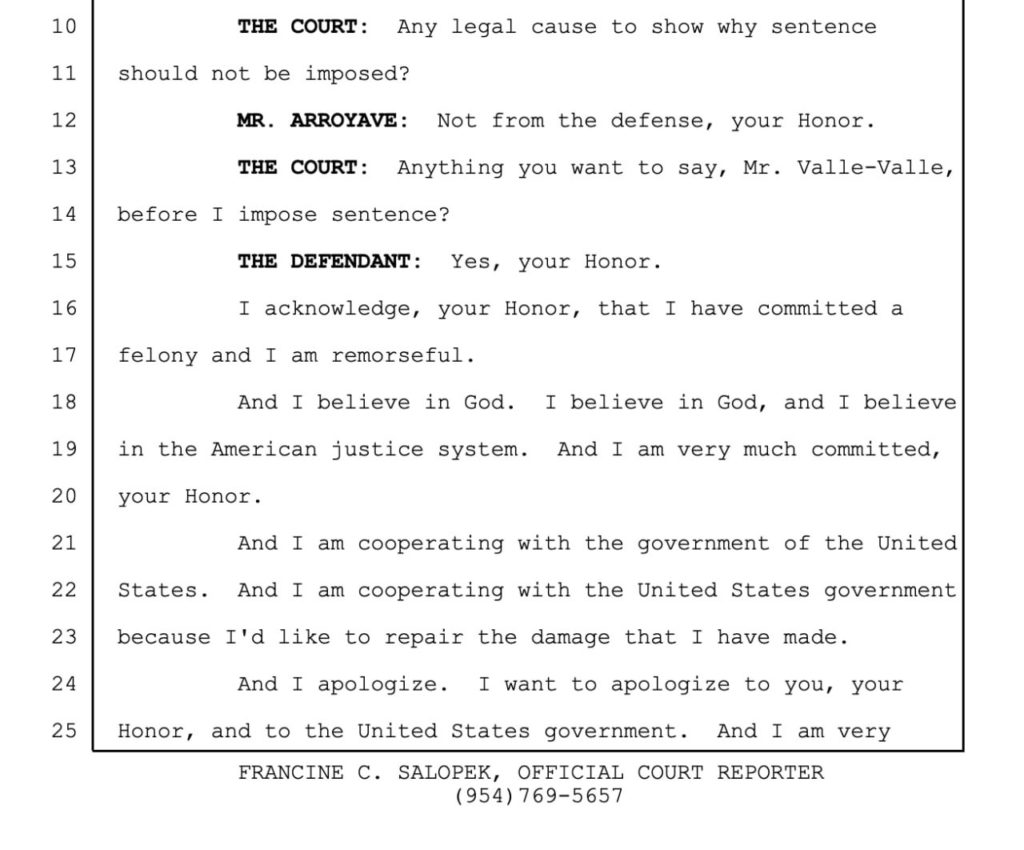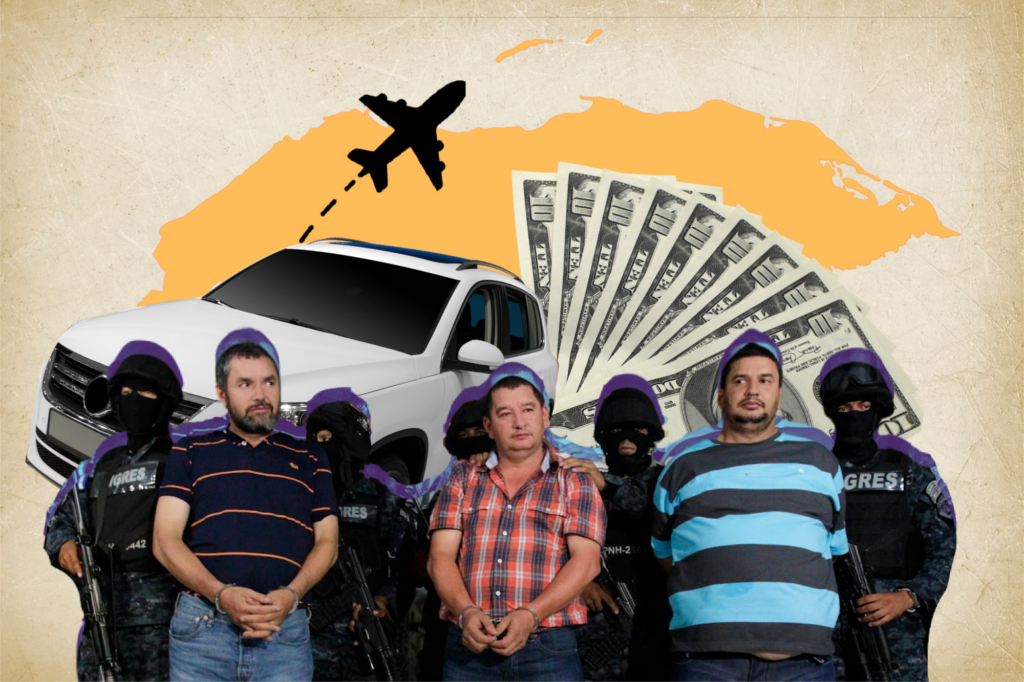Leaders of this criminal organization were indicted in the U.S., but some members have served their sentences and returned to Honduras, where they face no criminal charges. Following their apprehension and extradition in 2014, the Valles cartel was able to recover their assets, largely attributable to the slow pace of the Honduran judicial system and the lack of U.S. legal assistance necessary to settle proceedings to seize and forfeit assets. The Office for the Administration of Seized Assets (Oficina Administradora de Bienes Incautados – OABI) stated that they have no control over seized assets, and sources within the institution say that individuals close to the Valle Valle Cartel have taken possession of them.
Text: Célia Pousset
Illustration: Daniel Fonseca
Translated by: José Rivera
English Edit by: Amy Patricia Morales
The Valle Valle Cartel used to organize spectacular fairs in Copán, where they exhibited luxury cars, large gold-plated guns and thoroughbreds. “God forbid!” said one of the investigators as he recalled the experience. This investigator, having infiltrated operations by blending into such celebrations, eventually succeeded in apprehending the leaders of one of Honduras’ most important cartels.
The mission of the Investigator* and his colleague was to identify members of the cartel. They thought that the best way to avoid attention was to take selfies with attractions in the background. So they wandered around with their phones and waited for an opportunity to take pictures of the targets. However, their actions inadvertently drew attention. Suddenly, ten individuals started to follow them, and the chief detective warned them from the command center: “Abort the mission, they just sent three hitmen to kill you.”
Members of the cartel wanted to take them to a property owned by Luis Alfredo Escalante Landaverde, an associate of the Valle Cartel –for whom an extradition warrant was issued– to kill them. How the command center came to this conclusion was because they had tapped phones from the cartel and heard exchanges alerting to the presence of strangers taking selfies. The detectives barely made it out alive. Months later, the cartel offered a bounty of 5 million lempiras (around $200,000) for killing the detectives, but they were never found.
The Investigator who tells the story worked for the Anti-Drug Trafficking Directorate (Dirección Nacional de Lucha contra el Narcotráfico – DLCN). For four years, he went after the Valle Cartel, prepared reports for the Special Prosecutor’s Office against Impunity (Fiscalía Especial Contra el Crimen Organizado – FESCCO) as part of Operación Cerbero to take down the criminal organization led by brothers Miguel Arnulfo and Luis Alonso Valle Valle.
Agencies in the U.S. such as the FBI and the DEA pushed for intelligence operations in cooperation with the National Police in Honduras. In 2014, after six years of cooperative work, the Valle empire collapsed in a matter of seven months after special units successfully completed a series of operations.
It all began in June 2014, when Digna Valle was arrested in Miami by U.S. authorities for trafficking cocaine from Colombia to the U.S. through Guatemala and Mexico. Her brothers were then declared fugitives. In mid-August, Honduran authorities seized assets of the Valle family, in the department of Copán, for the first time while they were on the run. On October 2nd, the police captured José Inocente Valle Valle, the younger brother, and his wife. On October 5, they arrested Miguel and Luis Valle Valle on the outskirts of El Espíritu, Copán, in a cabin full of weapons, munitions, food and medicine. They were extradited to the U.S. in December.
Nine years after that remarkable achievement in the fight against organized crime, the Investigator spoke to us in an empty terrace at a coffee shop about the news that shook Honduras five months before: the Valle have returned to Honduras after serving their sentences in the U.S. José Inocente Valle and his wife, Marlen Griselda Amaya Argueta, were both sentenced to prison for drug trafficking charges. No arrest warrant has been issued, and there are no criminal charges against them in the country despite the crimes that they committed in Honduras.
According to Proceso Digital, a Honduran media outlet, Digna Valle served her sentence and was released from prison, but sought asylum in the U.S. and now lives in Texas. In addition, La Prensa reports that additional members of the cartel are going to be released from prison soon.
Their return to Honduras also brings much uncertainty. For a police officer who was involved in the operation to capture the Valle family and who will remain anonymous for safety reasons, this is a disappointment and a serious issue. “There will be bloodshed,” he said in an office at the Secretariat of Security (Secretaría de Seguridad). “In Copán, frontmen who were disloyal, and those who spent the money are at risk. We know that some have already fled, but the Valle family will go after them. It’s going to be business as usual. Good police officers will not be safe. We hoped that they would stay in the U.S. for the rest of their lives. We hoped that they would never return.”
There’s also uncertainty surrounding the frontmen and the assets, but most importantly, this is a real test for the Honduran State. Although authorities officially have control over the empire constructed by the Valle family – comprising over 150 properties, businesses, vehicles, and bank accounts – in practice, institutions have overlooked these assets, revealing their incapacity to effectively monitor and manage them. At present, a stagnated process of confiscation of ownership has yet to determine the fate of all assets obtained through illegal means. According to anonymous sources from the Office for the Administration of Seized Assets interviewed by Contracorriente, remaining members of the cartel have now regained possession of some of those properties.
The Investigator from the DLCN, who was involved in the operation that brought the Valle family down, Operación Cerbero, has even run into them in the street. “I’ve run into some of the members who were released from prison. They stare at me without saying a word. I get scared, but I don’t show it,” he said.

A cartel with political and judicial power
The Valle family was a drug cartel that transported cocaine in the strategic location of Copán near the Guatemalan border. The family had been involved in drug trafficking since the nineties. According to the Investigator, the cartel had more than 50 members. Some had been captured and then released. In 2003, Luis Valle was sentenced by a judge in Tocoa, in the department of Colón, for facilitating the transportation of drugs, but was released in 2005 when the Appellate Court of La Ceiba (Corte de Apelaciones de La Ceiba) issued a ruling in his favor.
Almost a decade later, when Juan Orlando Hernández (JOH) –now in prison in the U.S. for drug trafficking charges– was president of Honduras, the Valle Cartel was brought down. However, according to a police source, that’s not what JOH wanted.
“The Valle Cartel was under investigation for financing the Liberal Party with drug trafficking money throughout the country. For the ruling party back then, the National Party, it was necessary to deploy the military and national police to weaken them. Juan Orlando didn’t want to capture them, that’s what the U.S. wanted,” the police officer said. He added that Hernández wanted to help Alexander Ardón, former mayor of El Paraíso, Copan, and drug trafficker, who financed the National Party, and appointed his allies in key positions within the party as congressmen, city councilors or mayors.
Special police units who arrested members of the Valle family had the support of the U.S. government through the DEA, FBI, and Customs and Border Protection (CBP). “Honduran police were an instrument of the U.S. government. U.S. agencies provided all the logistic support: drones, armed vehicles and fuel,” our source said.
Almost every single asset was taken from the Valle Cartel. They were first seized in 2014, but it wasn’t until August 12, 2016, when the Special Prosecutor’s Office against Organized Crime issued a petition for the definitive forfeiture of illegally obtained assets, or an injunction under criminal law. Four days later, a judge allowed the petition and ordered that the Valle family, who had been extradited to the U.S., be personally notified of the legal process.
In all, more than 150 properties, 13 businesses, 36 vehicles, 300 head of cattle and dozens of bank accounts were seized.
“The Valle Cartel were extravagant,” the DLCN Investigator said as he showed us a video on his phone, which he has seen many times: ‘Crib of gold’ is a folk song dedicated to a boy born with power from the drug trade, he’s Miguel Valle’s son. The song goes like this: “it’s known around the world that in El Espíritu, Copán, many are born, but few grow up […] Luis Arnulfo will be the chief of chiefs.” The video shows a boy with a hat and cowboy boots sitting on tractors, and a bird’s-eye view of a pink mansion, a seized ranch called El Semental. “Being born in a crib of gold was his fate, and his father, with much pride, built a house for him, the son he’d longed for,” the musicians sang as they played the accordion. But it’s also a crib of lead. Suddenly, the Investigator pointed to a man in the video and said: “he was killed.”
The day when the Valle brothers were arrested, special units of the National Police, including the Tigres, seized dozens of high caliber weapons and the contents of a hidden stash, more than $11 million in bags.
Efforts by the State that seemed like the beginning of punitive actions against a family of drug traffickers, had, in fact, led nowhere. Since August 2016, no progress has been made.
The slow moving courts
A Public Official* warned us as we entered his office: “I can talk about developments of the case between 2014 and 2018.” He agreed to talk about his impressions on condition that he remains anonymous. He’s one of the few people in Honduras who knows about the state of cases concerning forfeiture of assets.
The reason why courts don’t issue a ruling on the seized assets is because the Valle Cartel has not been notified of the legal process. If the court doesn’t know the whereabouts of the legal owners, they can issue a public statement on media outlets, but it’s known that members of the cartel were in prison in the U.S. In this case, they should be personally notified, but that hasn’t happened.
According to the Public Official, legal assistance was requested to the U.S. until 2018, but there was no reply: “Legal assistance was also requested to Costa Rica, El Salvador, and Guatemala. They did reply, but the U.S. didn’t. I guess Honduras is not that important to them. Those responsible for this kind of policy, such as the embassy, do care, but a sheriff in some county in Texas, where a member of the Valle Cartel is serving his sentence, doesn’t care about Honduras.”
A public prosecutor confirmed that he sent a request regarding the Valle case to the U.S., but “the department of legal services did not send a lawyer to the penitentiary centers to finish the paperwork.”
This is not the first time that proceedings to seize and forfeit assets take place while the owners are in prison abroad. However, they normally approach the court through their legal representatives. “In the case of Ramon Matta, we asked authorities in the U.S. to notify him, which they didn’t, but we were lucky because Mr Matta had a legal representative in Honduras and the process continued,” the Public Official said.
Requests can be sent by the Attorney General’s Office or the Supreme Justice Court. However, Contracorriente found out that the latter gave that responsibility to the Secretariat of Human Rights, Justice, Governance and Decentralization (Secretaría de Derechos Humanos, Justicia, Gobernación y Descentralización), led by former minister Héctor Leonel Ayala, whose reputation is questionable. There’s no evidence in the file that the request was duly sent, and we couldn’t contact Ayala to ask him.
We tried to contact a source who receives requests concerning legal assistance in the U.S. to know why they didn’t follow up on those sent from Honduras, but we were not able to get in touch with him.

The Honduran State leaves the Valle empire on its own
For the Office for the Administration of Seized Assets (OABI), the institution that officially manages the cartel’s seized assets, a delayed ruling is also a problem. A confidential source from this institution told Contracorriente that “cases of forfeiture of assets are usually settled quickly, but not the Valle case. There are several assets managed by the State and it costs them, as they have to invest in security, custody and maintenance. Throughout the years, expenses add up. The fact that it’s a large quantity of assets and they’re located in remote areas is also an issue.”
According to our source, the challenge is to find a “balance” between seizing assets, which is a provisional measure, and a ruling of forfeiture. “Otherwise, the amount of seized assets exceeds the number of issued sentences,” he said.
Another source from OABI –who knows the institution well and agreed to talk anonymously– said pessimistically that they don’t manage too many assets because not all of the seized properties were handed over, adding that most of them are “completely abandoned.” Regarding the Valle case, he said that “men close to the family” have been in charge of the properties, which include houses and farms. “Security companies are not paid anymore, and guards stopped watching over the properties. Management at OABI made the decision, without the corresponding paperwork, to leave them in the hands of the cartel.”
José Rómulo Mejía, general secretary at OABI, doesn’t know who’s in possession of the properties, and if they’re part of the Valle Cartel or not since the institution is not aware of the amount and location of “many seized assets.”
“An audit commission at OABI is trying to locate the assets. There was no proper oversight during the previous administration, and, at present, we’re trying to determine the amount and location of assets, in what condition they’re in and what’s going on,” Mejía said.
Regarding the security companies contracted by OABI to protect the assets, Mejía added: “Security companies abandoned many of the properties, and their own employees looted them. We’re investigating to find out who’s responsible.”
“I’ve never met the Valle family”
“I never met the Valle family,” said a 60-year-old man to the judge during a forfeiture hearing in a September afternoon in Tegucigalpa. The man, who’s wearing an impeccable white shirt and shiny leather shoes, appeared before a jury claiming his property, which was seized during Operación Cerbero. “I’m under investigation because my last name is Valle, but I’m not related to them,” he says. Later that day, the Attorney General’s Office confirmed that he is not related to the Valle family, but was caught up in the mess. However, he couldn’t prove how he came to own his estate, leading the District Attorney’s Office to withhold the return of his properties, bank accounts and jewels.
In addition to family members involved in criminal activities, the Valle file contains data on more than 100 owners who have had properties taken from them by the State because they have either benefited from the cartel or acted on behalf of them. A special police unit (Unidad Sensitiva de la Policía) that tapped communications within the cartel states in a report: “There’s evidence that Miguel, alias Colocho, and Luis Valle, alias LV or El Cojo, gave instructions regarding the acquisition of properties and bank deposits in favor of third parties.”
The Public Official admitted that there’s a difference between “individuals who were part of the Valle Cartel and others whose last name is also Valle or made business transactions with them. That’s the complexity of forfeiture cases since we are not talking about criminal offenses, we’re looking at how irregularities are justified.”
There are legal provisions to determine what was the purpose of the asset, if it was involved in criminal activities or if it was illegally acquired. The legal owner of a property should prove that the asset was legally acquired in order to regain full ownership. It’s important to understand that the process of forfeiture of assets is completely independent of criminal proceedings such as money laundering.
According to the Public Official, this is reasonable because “there’s no way that an asset obtained as a result of illegal activity can become legal. For instance, if a thief steals a necklace and then sells it, the owner of the necklace is still the victim and not the buyer even though he didn’t commit a crime.”
Previous legislation dictated that assets would be seized if the owner was criminally prosecuted, but would regain possession of his assets if not found guilty by a jury. That’s why it’s important to make a distinction between the legitimacy of the assets and the owner’s criminal liability. For the same reason, people are referred to as legal owners instead of defendants who must prove how they came to possess the assets.
Lawyers and relatives who try to get territory back
Cable Color Génesis was a company located in a shopping center in the municipality of Nueva Arcadia, Copán. They offered cable services and had several employees. According to investigations by DLCN, which is part of the Attorney General’s Office, the company belonged to Luis Alonso Valle and was used to launder drug money.
The forfeiture file shows that the company was seized from Yasmin Zamira Aguilar Lemus, Luis’ ex-wife. Her lawyer affirms that Cable Color Génesis never belonged to the Valle family, and has been fighting for years to have it returned to her.
We asked the lawyer –who wishes to remain anonymous– about the case: “Cable Color Génesis, a legal entity, has not committed any crimes related to money laundering or drug trafficking. It’s a company engaged in legal commerce. There’s no proof that it was involved in money laundering. They pressed charges against my client simply because she has a bond with the Valle family; she was married to Luis Alonso, with whom she had children. But she established the company on her own after they divorced. Prosecutors suspect that Luis Valle put money in the company because of their marital bond, but they could never prove this. And they haven’t returned ownership of the company, the house and bank accounts because of that silly familial bond.”
The lawyer also said that the company is now managed by OABI, who currently leases it to a third-party. But according to sources we talked to, that company is still informally in possession of the legal owners since “OABI is not capable of managing it.”
The secretary general at OABI is unaware of the company’s state. “That’s also a problem because there are assets that are supposedly managed by unknown individuals. We’re investigating, but in order for me to give you a proper answer and explain the situation, I’d have to look at the file, which I don’t have with me at the moment,” he said.
According to Aguilar Lemus’ lawyer, the fact that the company did not commit any crimes should be enough to prove the nullity of the seizure: “The Attorney General’s Office is going to seize the company under the pretext that it belongs to a drug trafficker because he’s a business associate despite the fact that it’s used for legal activities. There’s no proof of money laundering. They assume that the company was involved in drug trafficking because one of its associates is a drug trafficker.”
The lawyer sent various letters to the jury requesting the revocation of the seizure. At some point, he thought about filing a claim arguing about the unconstitutionality of the measures taken against his client, but didn’t to avoid being “labeled a drug trafficker’s lawyer.”
He thinks that there’s “prejudice against drug trafficker’s relatives,” and that it’s unfair to associate someone because of a business relationship.
The Public Official agrees with the lawyer: “If a person has a relative who’s a drug trafficker, that doesn’t mean she’s too. But if the drug trafficker sells an overvalued asset or gives it away, that’s very suspicious. If there’s a transaction that involves many or few benefits, we have to delve into it.”
For instance, there’s another man in Santa Rosa de Copán whose last name is Valle. Some of his properties, including a hardware store, were seized. His lawyers appended proof to letters sent to court, but the District Attorney’s Office has not requested a reversal of the seizure of assets. His lawyers brought forward a constitutional appeal but was dismissed.
The Investigator, who’s part of the District Attorney’s Office, knows about Tito José Valle Chinchilla, the owner: “He’s definitely involved. When authorities were looking for assets owned by the Valle Cartel to seize them, he registered a hardware shop and some houses in his name to prevent the State from doing so,” he said.
In fact, in August 2014, when seizures first took place, and the Valle brothers had not been captured, the cartel quickly organized to protect as many assets as possible. The intervention unit who tapped their communications found out that “actions to conceal assets by transferring them to third parties took place. The Valle brothers also ordered members of the organization to destroy documents with the aim of preventing authorities from gathering evidential material that points to their illicit activities.”
We contacted Tito Chinchilla’s lawyer by telephone to know about his client’s defense against “frontman” charges for the Valle family, but he refused to give any statements.

The role of seizure and forfeiture of assets in the fight against organized crime
If we think of organized crime as a multi-headed monster, seizure and forfeiture of assets can be seen as a very sharp sword. According to Dennis Cheng, who spoke to Contracorriente, it could be more effective than sentencing some members of the organization to time in prison. Cheng has an extensive career on this subject and was director of a project called Systems for Management of Seized and Forfeited Assets in Latin America at the Organization of American States.
“In the early 2000s in Central America, the fight against drug trafficking and organized crime was not producing the results we expected, imprisoning individuals was not enough to bring down criminal structures. Criminals still owned assets, which could be used, inherited or even allocated from prison. In addition, forfeiture of assets can occur solely when the owner is found guilty. That legislation didn’t account for many cases such as death, frontmen and fugitives,” Cheng explained.
In this legal gap, new legislation concerning the forfeiture of assets, which was enacted in Honduras in 2010, was introduced to severely weaken criminal structures. It’s important to point out that Orlan Chávez, the prosecutor for money laundering and corruption cases who put that legislation forward, was assassinated in Tegucigalpa in 2013.
In 1996, Colombia was the first Latin American country to enact legislation to seize and forfeit assets. Authorities realized that they couldn’t bring down Pablo Escobar’s cartel unless they launched an attack on the heart of the organization: money, and what it buys, loyalty.
“Legislation to seize and forfeit assets were tools we used to destroy the economic power held by organized crime,” the Public Official said and then gave a clear example from his experience: “The case of Negro Lobo is interesting. He was a sailor in 1985, captain of a boat in ‘86, owner of a boat in ‘87, he lost that boat to a fire in ‘88, he owned two boats by ‘89, and had 14 boats by ‘92. A prosecutor told me that when his assets were seized in 2012, he went to the District Attorney’s Office surrounded by bodyguards to complain that they had taken his stuff: ships, houses, cars, companies and bank accounts. But without his assets he couldn’t pay for security guards. In what conditions did they capture him years later? Driving a truck, alone, wearing shorts and looking for food. That’s the power of seizing and forfeiting assets.”
In early August 2023, Carlos “Negro” Lobo was released from prison after serving a 10-year sentence in the U.S. and will be deported to Honduras.
The shadow of a cartel
In March 2023, a trial against twelve people associated with the cartel began in Honduras. One of them is Tesla Danessa Ortega Valle, daughter of Digna Valle. “In the case of the Valle and Ardon families, their businesses are still operating. Their sons and daughters are the new generation of criminals,” said a source from the police who was involved in Operación Cerbero.
He said that capturing the leaders was an accomplishment, but the business of trafficking drugs and the wealth it produces were inherited.
Besides that case, Miguel and Luis Valle are the only ones who were given a summons to appear in court, and for whom an arrest warrant was issued since legal proceedings against them for money laundering and drug and arms trafficking began in 2015.
The Public Official, who knows about forfeiture cases, thinks that the situation is very serious, “how is it possible that they’re already out of prison, they’re back, and the judicial process has not started?”
We contacted the District Attorney’s Office to know more about investigations concerning the Valle case and the reason why a summons has not been issued to compel other members of the cartel to appear in court. We requested an appointment, but by the time this article was published, they had not replied.
During the last couple of weeks, sources from the court involved in forfeiture cases demanded a report from the Attorney General’s Office about legal assistance requested concerning the Valle case. They are still waiting for a response. The court is optimistic that the seizure and forfeiture of assets will not come to a halt if the Valle members return to Honduras, quite the opposite, “they will be notified and the trial will begin.”
However, they instructed José Inocente Valle’s lawyer to bring him to court so that he can be personally notified. But this procedure hasn’t taken place even though his client is already in Honduras. In fact, a warrant for José Inocente’s arrest has not been issued yet.
Unlike the police, the DLCN Investigator doesn’t seem very concerned. He thinks that the Valle Cartel is not as powerful as it used to be, and, despite the release of some members from prison, they have “struck” the criminal organization.
–What did you feel when the Valle family was sentenced in the United States?
– Satisfaction.
–Even though they’re coming back soon?
–Yes. They would have never been sentenced in Honduras. No prosecutor would dare to bring charges against them, and no judge would’ve issued a sentence.
There’s something missing, and there’s a feeling of absurdity. It’s like Sisyphus pushing a boulder up a hill knowing that as soon as he makes it to the top, it’s going to roll down toward the valley. The feeling of working to no end. I ask him one last question:
–What’s the purpose of investigating the Valle Cartel for many years knowing that they would not be held accountable?
He answered without any hesitation:
–The certainty that I’m not responsible for the impunity in Honduras.
* The Investigator is a source who wished to remain anonymous for safety reasons.
**The Public Official is another source who wished to remain anonymous for safety reasons. The Investigator and the Public Official are not the same person.
This investigation was possible with support from the Consortium to Support Independent Journalism in Latin America (CAPIR), which is led by the Institute for War and Peace Reporting (IWPR).







